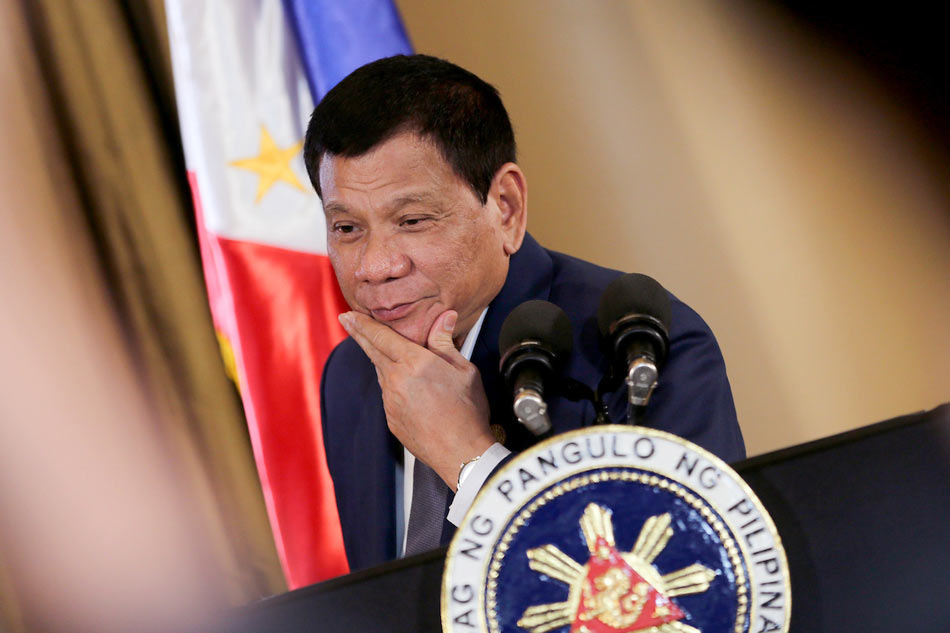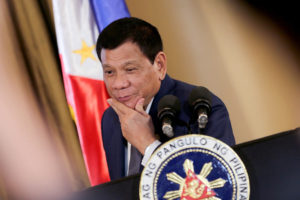Most Recent News


Popular News



Rodrigo Duterte, better known as "The Punisher", is relentlessly fighting the war on drugs in the Philippines. What are the results thus far?
 Rodrigo Duterte is quite the interesting character. He was previously the Mayor of Davao City, the largest city in the Philippines in terms of land area. And also the most populous city in the country outside of Metro Manila.
Rodrigo Duterte is quite the interesting character. He was previously the Mayor of Davao City, the largest city in the Philippines in terms of land area. And also the most populous city in the country outside of Metro Manila.
Duterte is better known now as the President of the Philippines.
He was sworn in on June 20th, 2016.
After a brutal campaign season, he ended up winning by a large margin. Duterte won by 6.6 million more votes than his closest rival.
He promised to have a bloody presidency, taking extreme measures against drug sale and possession. Duterte also promised to reintroduce the death penalty, tackle corrupt cops, and kill thousands of drug smugglers.
His war on drugs is extreme, drawing controversial headlines all over the world.
He has even put out a hit-list on corrupt cops, one priced at 2 million saying:
I’ll cut short my speech here so that you will have a chance for a crack at the two million for those idiots of your men there f***** the Filipino.
Yun lang ang iwan ko (That’s what I will leave behind), P2 million per head. Dead or alive,” he added.
Better dead because I have to pay for the funeral parlor. That is an added expense. I’d rather buy rice for the people.
One of the most prominent drugs in the Philippines is called “Shabu“. It’s a mixture of methamphetamine (hydrochloride-variant) mixed with caffeine.
Because apparently meth isn’t enough pressure on the heart, they figured that it would be good to add caffeine along with it.
In his first State of the Nation Address, President Rodrigo Duterte said that based on data from the Philippine Drug Enforcement Agency (PDEA), there were about “3 million drug addicts” in the country “two or 3 years ago,” and possibly 3.7 million now.
And in 2012, they had the highest rate of Shabu usage in all of East Asia. Where over 2%(!) of the entire population used Shabu.
That number has decreased because in 2005 the Drug Board stated that 5 million (3-4%) people had used drugs such as Shabu.
But it is still quite insane. Can you imagine if over 2% of our population used meth? (We are at .2%)
And 14% of the entire population in the Philippines were current drug users (This number includes things such as marijuana).
Compare these number to 1972. In 1972, only 200,000 people did drugs in the Philippines.
Now it is in the millions. It really has been an “explosion”.
One last statistic to consider. The Philippines Drug Board states that 80% of “heinous” crimes that get solved involve drug use. Most commonly, Shabu usage. “Heinous” crimes include acts such as murder, rape, kidnapping, and armed robbery.
Drug kingpins will regularly threaten (or blackmail) young women into being their drug mules. If they resist, their families’ safety will be jeopardized. They will then attempt to get these mules hooked on the drug to ensure their continual support.
Kids aren’t safe either. Kids are usually used as drug pushers and the “first-line” of sales domestically. In return, the drug kingpins will get them hooked on inhalants, waiting until they are older to start them on Shabu.
And what about government officials? They are in on it too. From 2010 to 2015, 623 government officials were arrested for drug possession (According to the Philippine Drug Enforcement Agency). 30% of these were elected officials. 25% were police.
A lot of these drug problems come from China. It is estimated (by the United States) that over nine different Chinese drug cartels hold major influence over the majority of Shabu production in the Philippines.
The situation had gotten so bad that even the militant communist insurgency has begun to support Duterte, because of his war on drugs.
Likewise, crime has also skyrocketed in recent years:
[table broken]
In fact, in 2015, Davao City was ranked the 9th safest city in the world. No, really.
It was even safer than Stuttgart, Germany.
And this was after years and years of Duterte (or Duterte-affiliate) mayor-ship. He was first elected Mayor of Davao City back in 1988, when the drug war first started ramping up in the Philippines.
He managed to make it one of the safest cities left in a country that has been ravaged by the drug trade.
And throughout his entire career, he has ruled with an iron-fist regarding crime. Even saying he killed people personally.
So is it any surprise that his presidency has also followed his previous actions as mayor?
So with the election of Duterte, came extreme assaults against these disturbing trends.
Within the first two months of his election, it is estimated that over 2000 drug users/pushers were now pushing daisies.
The United States Department of State mentioned in their report “The International Narcotics Control Strategy Report” that a conservative estimate of 6000 have died just from December 2016-March 2016 in extrajudicial killings.
So the total number from his election until now would easily reach in the tens of thousands.
The Department of State also noted that:
Law enforcement agencies, including the Philippine Drug Enforcement Agency (PDEA), the Philippine National Police (PNP) Anti-Illegal Drugs Group (AIDG), and local police forces, have initiated an unprecedented number of anti-drug operations.
As of December 26, 2016, the media and PNP have reported that over 6,000 individuals have been killed, 2,155 in law enforcement operations and 4,049 by suspected vigilantes or unknown assailant.
And it isn’t going to stop there.
Duterte has said numerous times, the following quote:
We will not stop until the last drug lord … and the last pusher have surrendered or are put either behind bars or below the ground, if they so wish
And with Filipino insurgent groups lining up to help the president tackle the drug problem, it’s likely to start ramping up even more in the coming years.
What’s the result? Well, for one, crime is down.
Various police operations have shown to be effective, with journalists in the country reporting that:
673,978 drug personalities have surrendered and appeared before police stations for processing.
While the number of current-year drugs users is not known, both estimates put the figure below its height in 2012.
I find this information really interesting.
It has a few key points I’d like to point out here:
Will this trend continue into the future? I am not sure. But I’m definitely going to be keeping a close eye on it.
It will be really interesting to see if this all-out assault on drug users/distributors yields a long-term positive result.
I’m especially interested in the crime & drug use data release, which is scheduled for early 2018. So you’ll hear an update about this situation whenever I get my hands on that data and can run some numbers.
While I don’t want to take a policy position here, I do hope that everything works out in the best interests of all Filipino people. The drug epidemic is one of the most destructive things societies everywhere have faced.
It’s about time that some of the people that make a living by ruining other peoples’ lives and communities face justice.
(Learn More About The Dominion Newsletter Here)